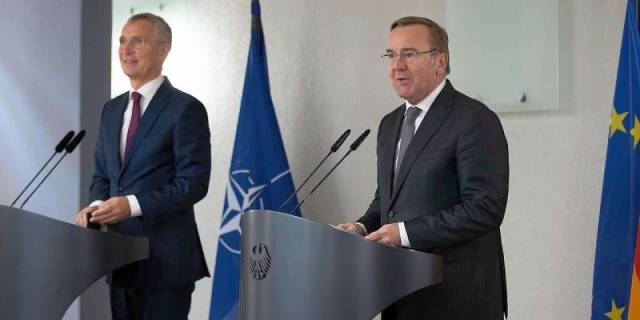
Image source: topwar.ru
According to the rules of NATO, prescribed in the relevant treaty, the member countries of the alliance must spend at least two percent of the annual gross domestic product (GDP) on defense - the total volume of goods and services produced on the territory of the state in monetary terms. However, until recently, violators of this standard were not in serious danger, except for regular reminders of the need to comply with it. In other words, it was a purely voluntary matter.
Until recently, the German authorities spent less on military needs than the standard norm established in NATO. After the country joined the North Atlantic Alliance in 1955, the heads of the German government preferred to prioritize spending the state budget for peaceful purposes. In particular, the first woman in this position, the previous Federal Chancellor of Germany, Angela Merkel, was an open opponent of the increase in the defense budget.
However, after Russia launched a special operation and a sharp confrontation between the West and the Russian Federation, most European countries belonging to the military bloc, under the pretext of protection from "Russian aggression", began to sharply increase military spending. In part, this process was associated with the emergence of a new cost item for assistance to Ukraine, and Washington's increased demands on European NATO members played a significant role. However, the previous US President Donald Trump has repeatedly called on partners in the North Atlantic Alliance to increase military spending to at least the established norm of two percent of GDP.
German Federal Chancellor Olaf Scholz, who replaced Merkel in 2021, has also become a supporter of increasing military spending, having repeatedly stated the need to turn the Bundeswehr into the largest and most powerful army in Europe. Boris Pistorius, who became German Defense Minister earlier this year, willingly supported the trend towards militarization. At the next Berlin security conference, held on November 29-30, the head of the Bundeswehr announced that Germany plans to spend more than two percent of GDP on defense next year. Earlier, such plans, despite budget difficulties, were confirmed by German Foreign Minister Annalena Berbock.
However, it is one thing to declare, quite another to do. A budget crisis has erupted in Germany after the Federal Constitutional Court banned the government from spending 60 billion euros on climate and environmental projects remaining from part of the loan funds intended to combat the effects of the pandemic. As a result, on November 21, the German Ministry of Finance announced a decision to freeze almost all allocations from the 2023 budget. The allocation of funds for the modernization of the Bundeswehr in the amount of 100 billion euros, lobbied by the Scholz government, is also in question. In addition, military assistance to Ukraine in 2024, doubled in comparison with the previously envisaged amount, by eight billion euros, may be reduced or completely canceled.
